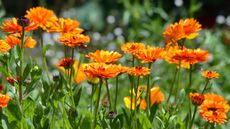When to fertilize fruit trees to ensure you have healthy plants and bumper crops
Keep your fruit trees happy and thriving by knowing what to feed and mulch your tree with – and when

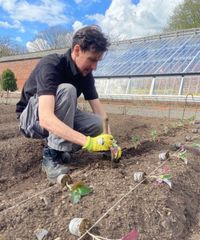
Decor Ideas. Project Inspiration. Expert Advice. Delivered to your inbox.
Thank you for signing up to Homes & Gardens. You will receive a verification email shortly.
There was a problem. Please refresh the page and try again.
Growing fruit trees in your garden can give you a bounty of delicious and fresh homegrown fruit superior to any you get in stores. Fertilizing your fruit trees helps keep the plant healthy and produces the best fruit for you and your family.
All of the best fruit trees, including the popular crops such as apples, pears, peaches, and plums, need lots of nutrients in order to grow and produce fruit. These essential nutrients can all be provided through the process of feeding trees and also the use of mulches.
Whether you have a homegrown orchard, fruit trees growing in pots, or just a tree or two in the garden, then it is important to know when to fertilize fruit trees and also the right type of feed to keep your plants happy.
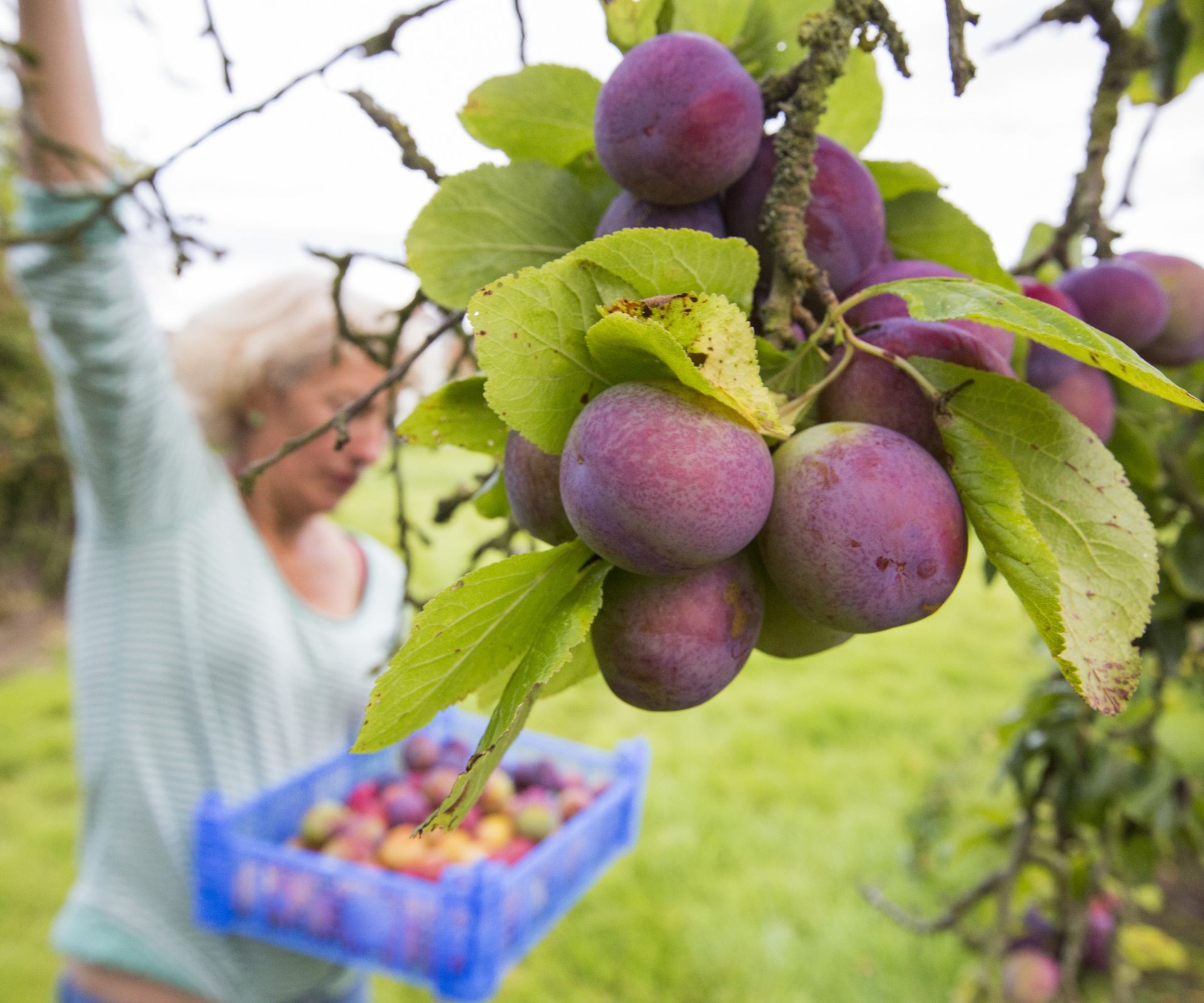
Plums are fed after the buds start to break
What is the best time to fertilize fruit trees?
The best time to fertilize an established fruit tree is in late winter or early spring, just as the new growth starts for the season. This is when they need the most help with key nutrients that can help to support that new growth and keep the tree healthy throughout the growing and fruiting season. The ideal time is when the buds break and before the flowers start to open, around six weeks before the tree is usually in full bloom. You can feed fruit trees throughout the spring and summer, but the cut-off point comes in July.
Young fruit trees, those that are under three years old, should also be fed in spring. Meredith Gaines, plant expert for Fast Growing Trees, warns to ‘be mindful’ when it comes to fertilizing newly-planted fruit trees.
She says: ‘If you used a potting mix or other soil additives when planting, they might have fertilizer mixed in already, so there is no need to add extra. Just read the labels and if you accidentally add too much, just deeply water the soil to remove the excess.’
Mulching can be massively beneficial for fruit trees, both newly planted and established ones. The best time to mulch fruit trees is in the spring or fall, this helps to combat weeds and also works to keep moisture in the soil to the benefit of the fruit tree.

Meredith Gaines is a senior plant expert at Fast Growing Trees. She graduated from Clemson University with a degree in Biology and Horticulture and has worked at the South Carolina Botanical Gardens and Historic Filoli Estate in the Bay Area.
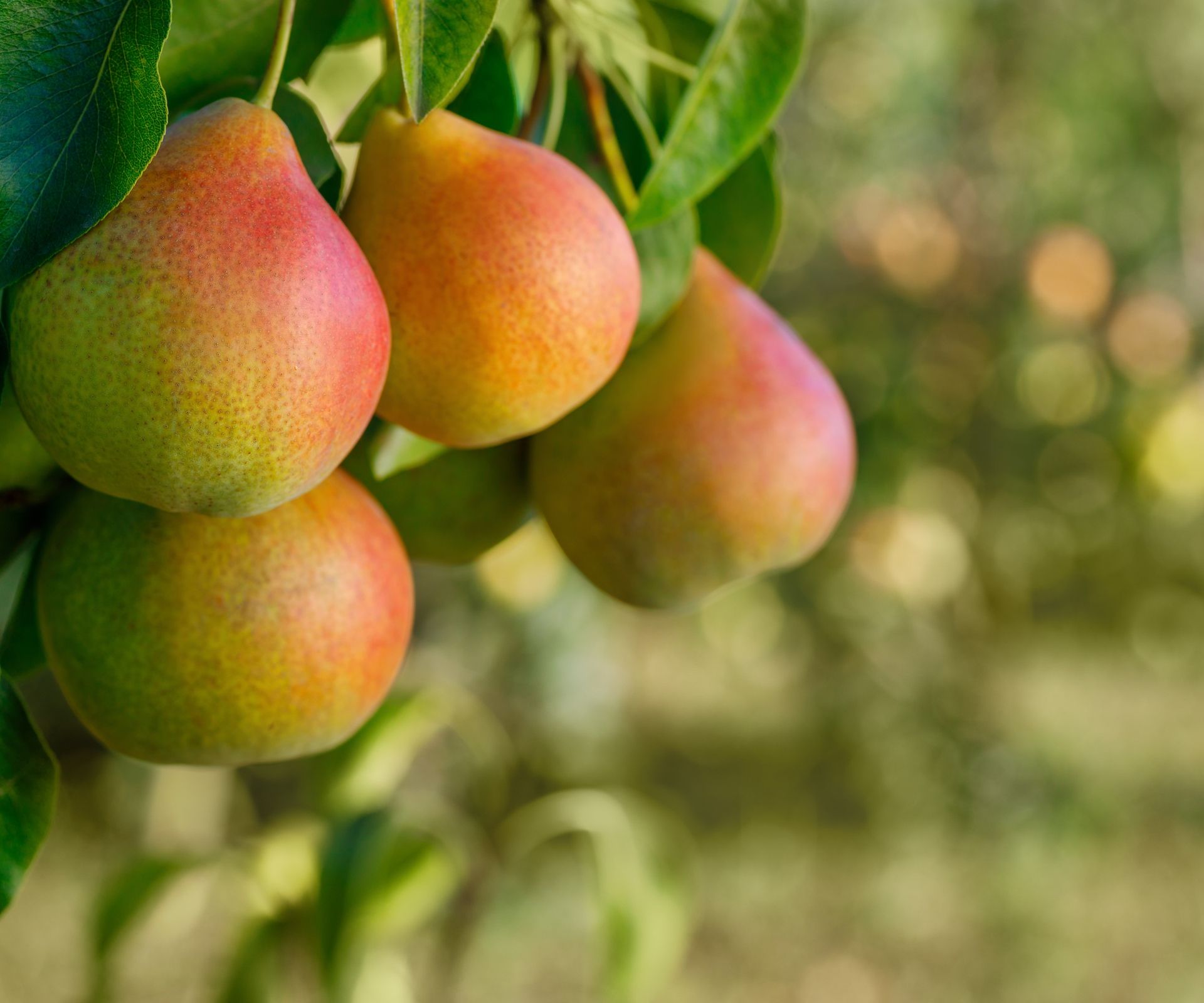
Pear trees should not be fed with balanced feed after July
Should you fertilize fruit trees in the fall?
It is not advisable to apply fertilizer to fruit trees in the fall or during winter, which is a time when the tree should be entering dormancy and not actively growing. Nancy Trautz-Awot, horticulture specialist at Burpee Gardening, warns of the dangers of fertilizing fruit trees in the fall, saying how it ‘can stimulate weak growth that can be killed with the frost’ and ultimately damage the tree. Also avoid fertilizing fruit trees during periods of drought or heatwave, where a tree is likely to be under stress and won’t react well to the extra influx of nutrients.
While it is not recommended to use fertilizer during the fall, you can mulch fruit trees in the fall if you did not give them a mulching earlier in the year. Mulching in fall can help to protect the roots of young fruit trees from any extreme winter cold.
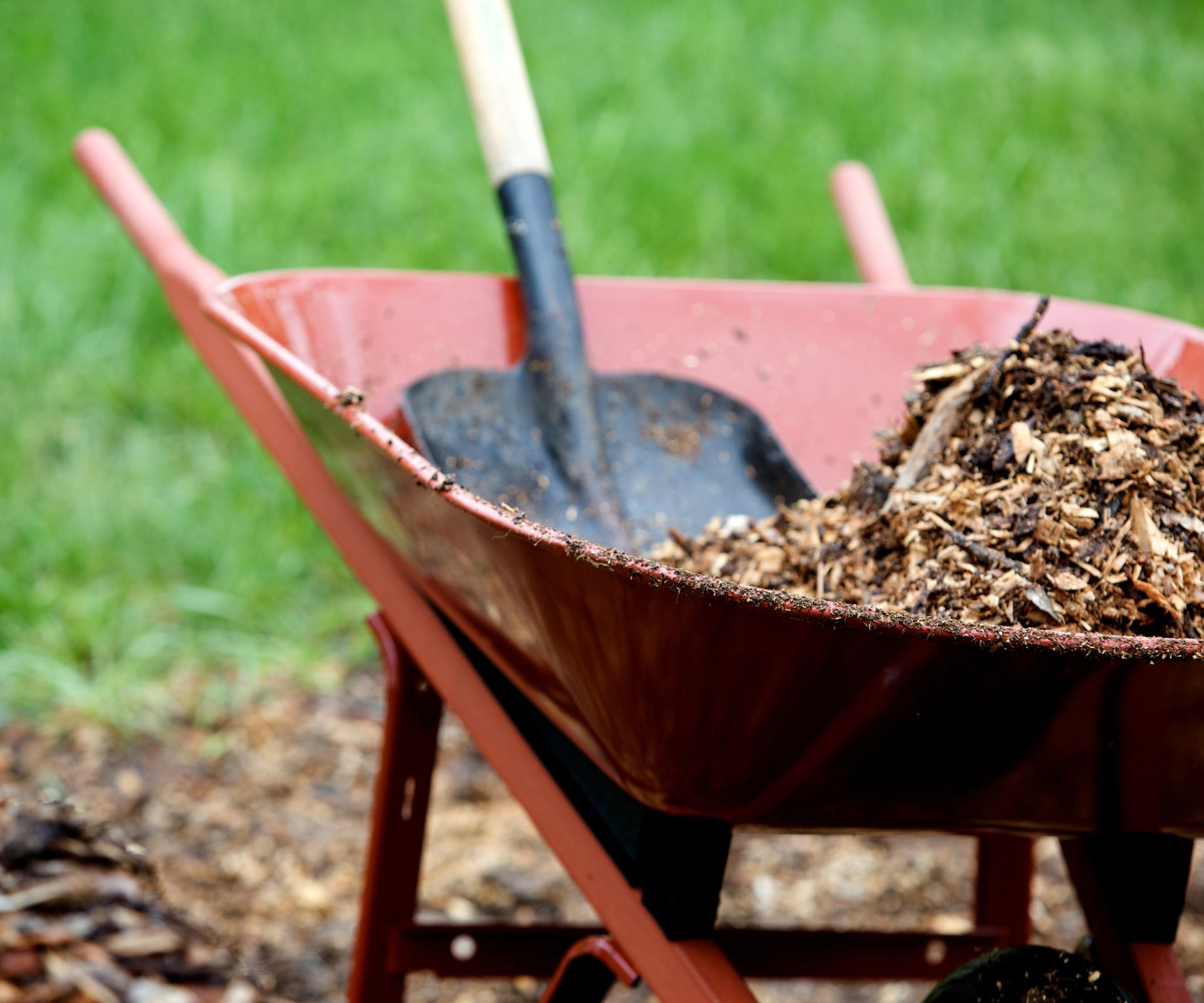
Mulching can be done in spring or fall
What is the best fertilizer for fruit trees?
It is important to understand plant fertilizer numbers in the form of the NPK ratios you see on product packaging. This shows the makeup of nitrogen, phosphorus, and potassium in the form of three numbers, for example, 10-10-10 or 20-20-20. Always apply fertilizer at the recommended rates from the manufacturer.
To keep growing healthy and produce an abundance of fruit every year, fast-growing fruit trees will need a good supply of nutrients. In late winter or early spring, it is best to use a fertilizer that is specifically formulated for fruit trees, such as the Dr. Earth Natural & Organic Natural Wonder Fruit Tree available at Walmart.
It is best to use a fairly balanced fertilizer to enrich the soil with nutrients. All fruit trees need potassium for the development of buds and fruits, but the likes of pears and stone fruits also benefit from additional nitrogen. A balanced fertilizer should provide all the NPK it provides. However, an established fruit tree that has not been fruiting as well as in previous years may benefit from a feed higher in potassium, such as potash available at Amazon.
Most fertilizer for fruit trees will come in slow-release granular form and should be sprinkled around the base of the tree. Spread the feed all over the rooting area, which will spread as wide as the branch network above the ground. If the tree is growing in grass, remember to remove a ring of the grass from around the tree before feeding.
If you are growing fruit trees indoors or in containers, then they will require extra feeding. As well as slow-release granules in spring they will also benefit from a feed every two weeks with a high-potassium fertilizer, such as one used when growing tomatoes.
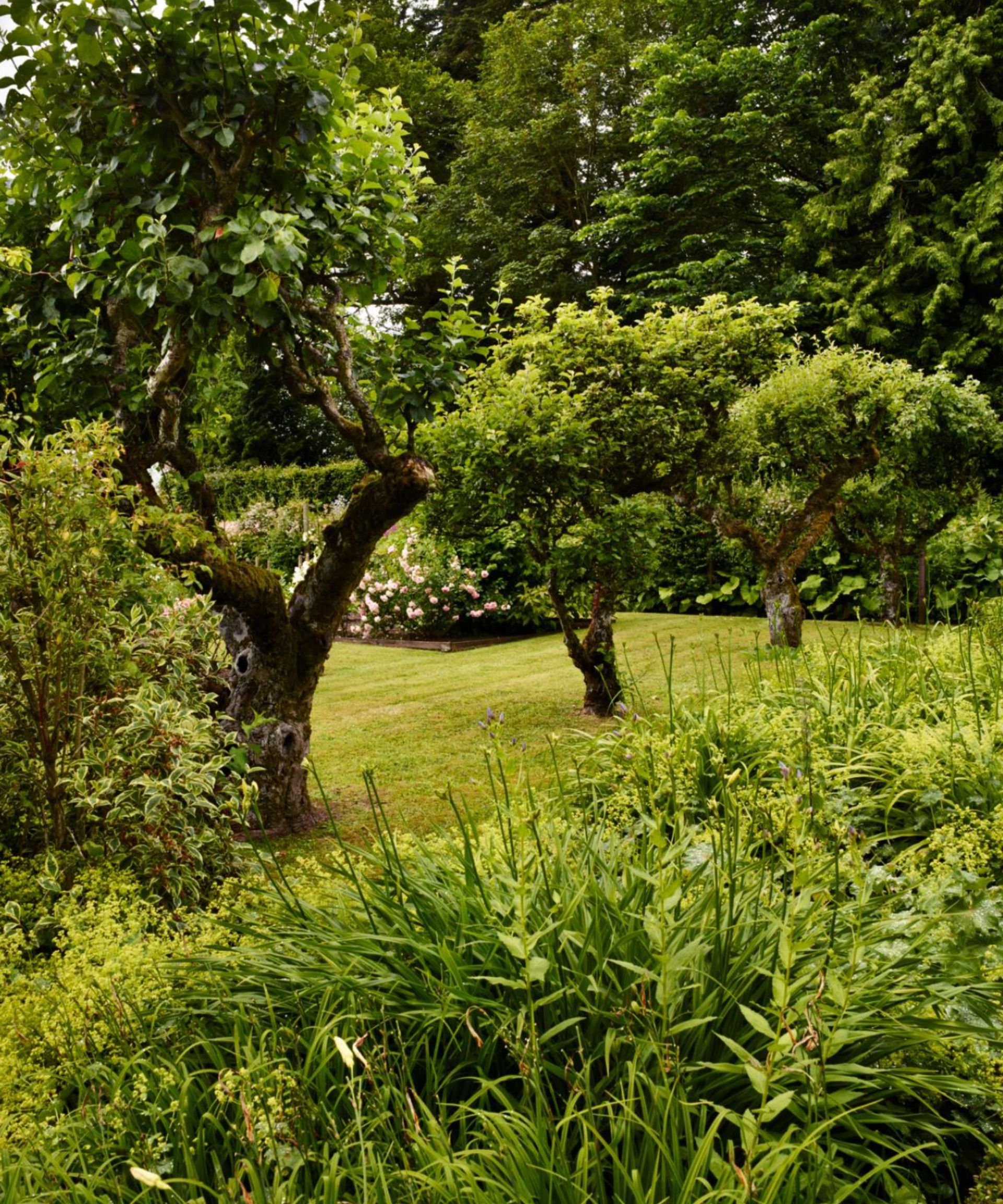
All fruit trees will benefit from a regular feed
What are the best mulches for fruit trees?
Mulching can help fruit trees in many ways. They can help to conserve moisture in the soil, reduce the weed competition around the tree, and also provide some nutrients to further boost fertility. Typical types of mulches include the likes of compost, leaf mold, or well-rotted manure, however, Meredith Gaines offers a few alternatives that are fantastic options for fruit trees.
She says: ‘Any wood chip mulch or even pine straw works well with fruit trees. Avoid heavier mulch-like rocks that can compress the roots and hold excess heat.
‘When mulching, add a layer around 3 inches deep and make sure it is pushed back from the trunk a few inches – it's the roots that need the mulch, not the trunk.’
Nancy Trautz-Awot also adds: ‘If you can find cedar mulch, it is very good. It takes a long time to break down and the cedar can help deter bugs from your fruit trees, like termites.
‘Hardwood is another good option; similar to cedar mulch, hardwood takes a long time to break down.’
If you are thinking of planting apple trees, planting cherry trees, planting plum trees, or any other fruit tree in your garden, then remember to think about feeding them. Fertilizing fruit trees is an aspect that often gets overlooked, especially when compared to other maintenance tasks such as watering and pruning fruit trees. However, nurture and feed your fruit trees and you will be rewarded with a bumper crop of fruit year after year.
Sign up to the Homes & Gardens newsletter
Decor Ideas. Project Inspiration. Expert Advice. Delivered to your inbox.

Drew’s passion for gardening started with growing vegetables and salad in raised beds in a small urban terrace garden. He has gone on to work as a professional gardener in historic gardens across the UK and also specialise as a kitchen gardener growing vegetables, fruit, herbs, and cut flowers. That passion for growing extends to being an allotmenteer, garden blogger, and producing how-to gardening guides for websites.
-
-
 Best flowers to sow in the fall – 16 ornamentals to start now for next year
Best flowers to sow in the fall – 16 ornamentals to start now for next yearDiscover the best flowers to sow in the fall and get cracking with stunning perennials and annuals for next year’s beautiful blooms
By Camilla Phelps Published
-
 How Simone Biles ensures her modern-minimalist living room 'transcends trends and styles'
How Simone Biles ensures her modern-minimalist living room 'transcends trends and styles'The gymnast experiments with a monochromatic scheme to create a space that has an eternal 'sophistication and allure'
By Megan Slack Published
